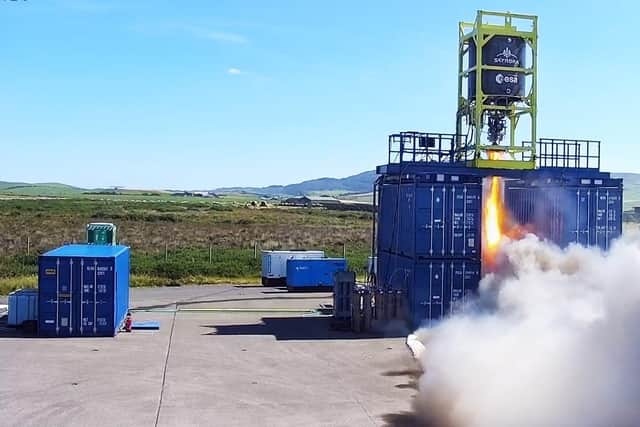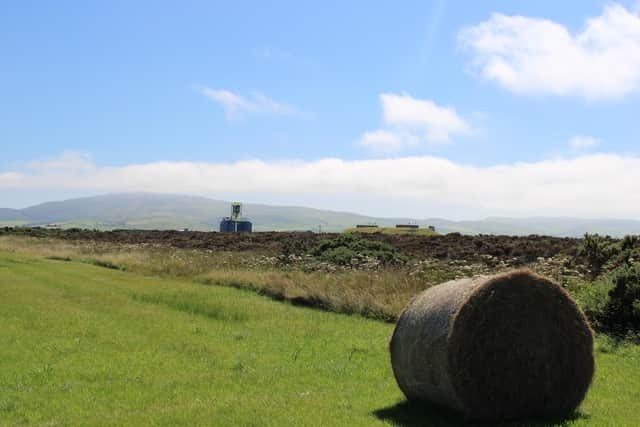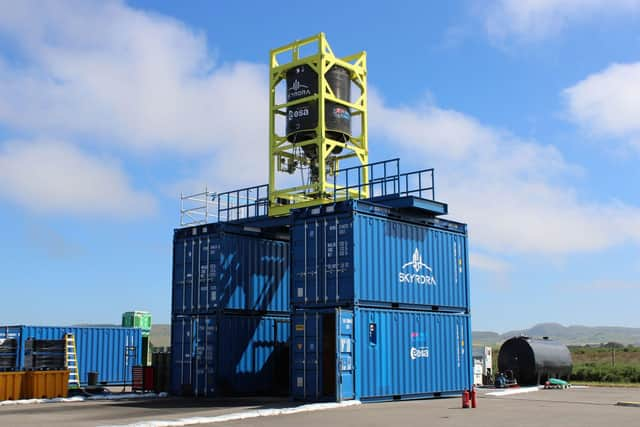Scotland's space quest landmark as historic engine test takes place
Scotland based rocket company Skyrora successfully tested an engine that will be used, as part of a three-stage rocket, to launch small satellites into orbit from Scotland.
Lee Rosen, the company’s chief operating officer, said: “As far as I’m aware, this is the first test of its kind anywhere in the United Kingdom.”


Advertisement
Hide AdAdvertisement
Hide AdThe engine tested will be part of the company’s XL rocket, which it intends to launch into space by the end of next year.
Successfully completed testing on the second stage of their three stage XL space rocket puts them in a strong position to be the first company to vertically launch a satellite into orbit from UK soil.
Scotland already makes more satellites than anywhere else in the world other than the United States. And with a lack of available rockets to launch satellites from, Skyora is amongst a growing number of companies hoping to capitalise on an increasing backlog manufacturer looking for a ride into space.
This test was of the integrated ’second stage’ – the section of the rocket that provides the thrust into orbit and then falls away and returns to earth. It includes an engine, fuel tank, and pressurising, electrical, avionic and manoeuvring systems.


The test took place at Machrihanish Airbase – formerly an RAF station reserved for space shuttles to land when in in trouble, but fast becoming a hub of development and testing for the Scottish space industry.
When the engine was fired, vibrations could be felt, and a roar like a low-flying aircraft could be heard filling the sky.
The test lasted for 30 seconds, during which all systems were tested.
There is a certain amount of secrecy around developments from the companies competing in the 'Scottish space race’, but M Rosen said he was confident this is the first time a full stage has been tested in the UK.


Advertisement
Hide AdAdvertisement
Hide Ad“This was a major milestone on our journey to launching the Skyrora XL rocket,” he said.
"We are now planning for a full launch into orbit at the end of 2023. This is a huge deal for Scotland, and for the development of the space industry."
Mr Rosen spent decades in the US air force before moving to Space X where he worked closely with billionaire entrepreneur Elon Musk.
He has completed more than 200 launches in his career, moving to Scotland four months ago to be closer to his daughter, who is studying at Stirling University.
Skyora aren’t alone. Scotland’s growing space industry is aiming to hold a £4 billion share of the global space market and create 20,000 jobs by 2030. They are also focused on sustainability and making Scottish spaceports the greenest in the world.
The next step for the team will be testing the biggest part of the rocket early next year, known as the first stage. If that goes to plan, Skyora hopes the launch of the fully assembled XL rocket will take place from the Saxavord spaceport on Unst in the Shetlands – and will be the first ever vertical launch in the UK.
The rocket will need to reach a speed of 17,500 mph to reach lower earth orbit.
Matt Archer, director of commercial spaceflight at the UK Space Agency, said: “It’s exciting to see Skyrora complete these static fire engine tests, building on the successful opening of its new production facility in Cumbernauld.
Advertisement
Hide AdAdvertisement
Hide Ad"As we soar towards the UK’s first commercial space launches, these achievements showcase our rapidly growing capabilities, and the increasing range of expertise that can make the UK a highly attractive destination for launch activities in Europe.”
Comments
Want to join the conversation? Please or to comment on this article.
